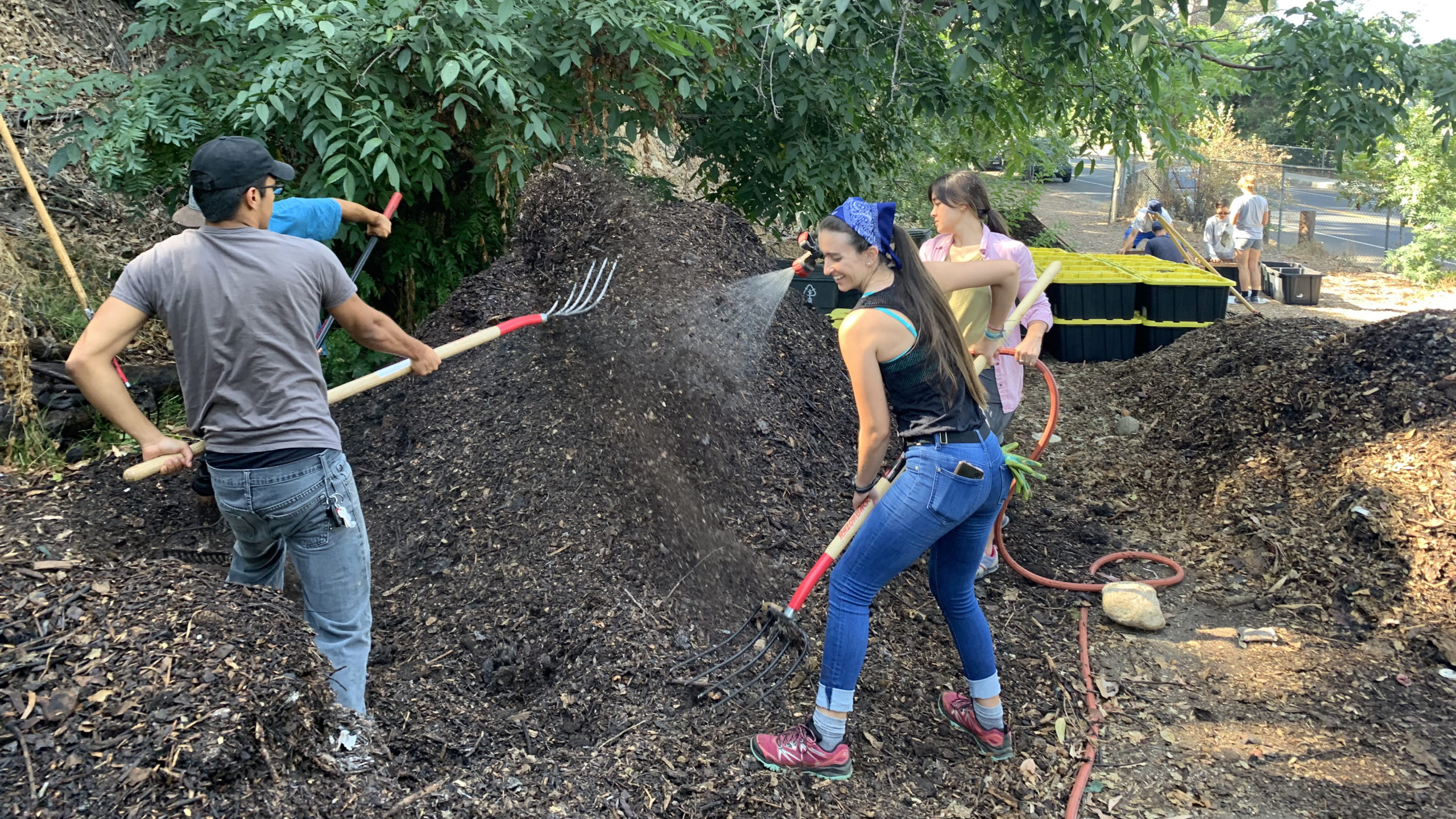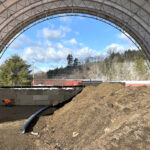Top: Community composting hub operated by LA Compost. Photo courtesy of LA Compost
The California Alliance for Community Composting (CACC), in collaboration with the People, Food, and Land Foundation, was selected in June 2020 as the recipient of CalRecycle’s $1.35 million pilot grant program “Community Composting for Green Spaces.”
The grant from CalRecycle is funding the launch of a network of community composting sites across 6 regions in the state: San Francisco Bay Area, Fresno and Central California, Inland Empire, Greater Los Angeles, Sacramento and Northern California, and Greater San Diego. The purpose of this program is to “increase the number of community groups operating small-scale composting programs in green spaces within disadvantaged and low-income communities, and to increase the capacity of those composting programs,” explains CalRecycle. “Green spaces include, but are not limited to, community gardens, urban farms, and other public spaces where small-scale composting is appropriate.”
Community-scale composting collects food scraps and organic material from local residents, farms, commercial, and community spaces (such as schools, churches, and urban farms and gardens), and composts that material in a healthy and safe way, building healthy local soil, and supporting ecologically-based food production at the community scale. CACC’s community composting program to support community sites is now active and the Alliance is seeking community composting hub applicants in California.
The Community Composting for Green Spaces program will provide:
- Skilled staff to support projects with community composting, organizational and site development, community engagement, data collection and record keeping, community composting hub health assessments, and additional community benefits connected to composting (such as farming, education, volunteer engagement, etc.) for up to 23 months
- Limited infrastructure expenses (on average $1,500/site) related to community composting, organizational and site development, tree planting and maintenance, and associated community benefits
- Organizational capacity and program development support aimed at ensuring project sustainability
Some funds for local staffing may also be available on a site-by-site basis. Individuals, groups, and formal organizations are welcome to apply for assistance, notes Lynn Fang of LA Compost, which operates decentralized community composting hubs in Los Angeles and throughout Los Angeles County. “Applicants interested in starting a community compost project must submit an application. Applications will be accepted on a rolling basis, with a priority deadline of November 24, 2020, and a secondary deadline of December 15, 2020.” The form, which can be completed online, is available in English, Spanish, and Chinese (Simplified and Traditional). A paper copy of the form can be printed and mailed to: California Alliance for Community Composting, c/o LA Compost, 221 W Ave 45, Los Angeles, CA 90065. “CACC is happy to assist with the application process, and we will be posting FAQs to the website periodically at thecacc.org,” adds Fang. “If you have any questions, don’t hesitate to reach out via cc4greenspaces@gmail.com or (323) 522-5020.”














